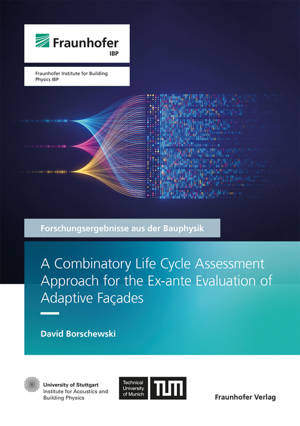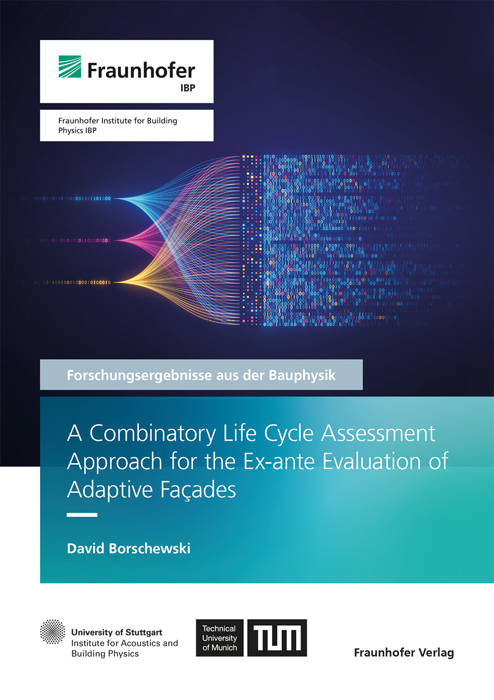
Bedankt voor het vertrouwen het afgelopen jaar! Om jou te bedanken bieden we GRATIS verzending (in België) aan op alles gedurende de hele maand januari.
- Afhalen na 1 uur in een winkel met voorraad
- Gratis thuislevering in België vanaf € 30
- Ruim aanbod met 7 miljoen producten
Bedankt voor het vertrouwen het afgelopen jaar! Om jou te bedanken bieden we GRATIS verzending (in België) aan op alles gedurende de hele maand januari.
- Afhalen na 1 uur in een winkel met voorraad
- Gratis thuislevering in België vanaf € 30
- Ruim aanbod met 7 miljoen producten
Zoeken
A Combinatory Life Cycle Assessment Approach for the Ex-ante Evaluation of Adaptive Facades
David Borschewski
€ 51,45
+ 102 punten
Omschrijving
Global efforts to meet the 1.5 °C target of the Paris Agreement are falling short, with the construction sector accounting for 38 % of global CO2 emissions. Adaptive facades offer a solution by reducing both building resource consumption and energy demand, but their uptake is limited by high initial costs and complex systems. Using a case study, new Life Cycle Assessment (LCA) motivators have been identified that take into account second-order effects when integrating building services equipment into an adaptive facade. The design of environmentally optimised facades poses new challenges for LCA, including large numbers of potential design configurations (> 1 million) and complex interdependencies between the design and use phases. A new methodology combining LCA with data science tools and visual analytics has been developed to evaluate all potential product configurations within a defined parameter space. This data-driven approach, supported by advanced visualisation, improves decision-making by uncovering opportunities that may be missed in traditional LCA approaches, paving the way for sustainable, adaptive building solutions.
Specificaties
Betrokkenen
- Auteur(s):
- Uitgeverij:
Inhoud
- Aantal bladzijden:
- 172
- Taal:
- Engels
- Reeks:
- Reeksnummer:
- nr. 60
Eigenschappen
- Productcode (EAN):
- 9783839620731
- Uitvoering:
- Paperback
- Afmetingen:
- 148 mm x 210 mm

Alleen bij Standaard Boekhandel
+ 102 punten op je klantenkaart van Standaard Boekhandel
Beoordelingen
We publiceren alleen reviews die voldoen aan de voorwaarden voor reviews. Bekijk onze voorwaarden voor reviews.









